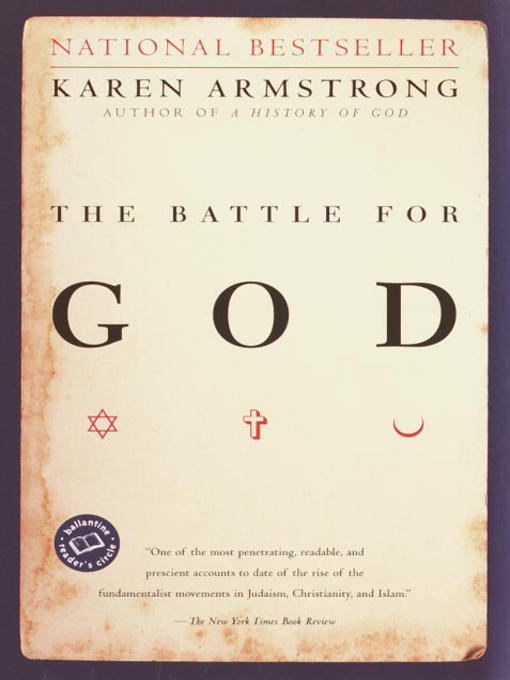
We see the West in the sixteenth century beginning to create an entirely new kind of civilization, which brought in its wake change in every aspect of life — often painful and violent, even if liberating. Armstrong argues that one of the things that changed most was religion. People could no longer think about or experience the divine in the same way; they had to develop new forms of faith to fit their new circumstances.
Armstrong characterizes fundamentalism as one of these new ways of being religious that have emerged in every major faith tradition. Focusing on Protestant fundamentalism in the United States, Jewish fundamentalism in Israel, and Muslim fundamentalism in Egypt and Iran, she examines the ways in which these movements, while not monolithic, have each sprung from a dread of modernity — often in response to assault (sometimes unwitting, sometimes intentional) by the mainstream society.
Armstrong sees fundamentalist groups as complex, innovative, and modern — rather than as throwbacks to the past — but contends that they have failed in religious terms. Maintaining that fundamentalism often exists in symbiotic relationship with an aggressive modernity, each impelling the other on to greater excess, she suggests compassion as a way to defuse what is now an intensifying conflict.
BONUS: This edition contains an excerpt from Karen Armstrong's Twelve Steps to a Compassionate Life.
-
Creators
-
Publisher
-
Release date
August 10, 2011 -
Formats
-
Kindle Book
-
OverDrive Read
- ISBN: 9780307798602
-
EPUB ebook
- ISBN: 9780307798602
- File size: 2378 KB
-
-
Accessibility
-
Languages
- English
-
Reviews

Loading
Formats
- Kindle Book
- OverDrive Read
- EPUB ebook
Languages
- English
Why is availability limited?
×Availability can change throughout the month based on the library's budget. You can still place a hold on the title, and your hold will be automatically filled as soon as the title is available again.
The Kindle Book format for this title is not supported on:
×Read-along ebook
×The OverDrive Read format of this ebook has professional narration that plays while you read in your browser. Learn more here.